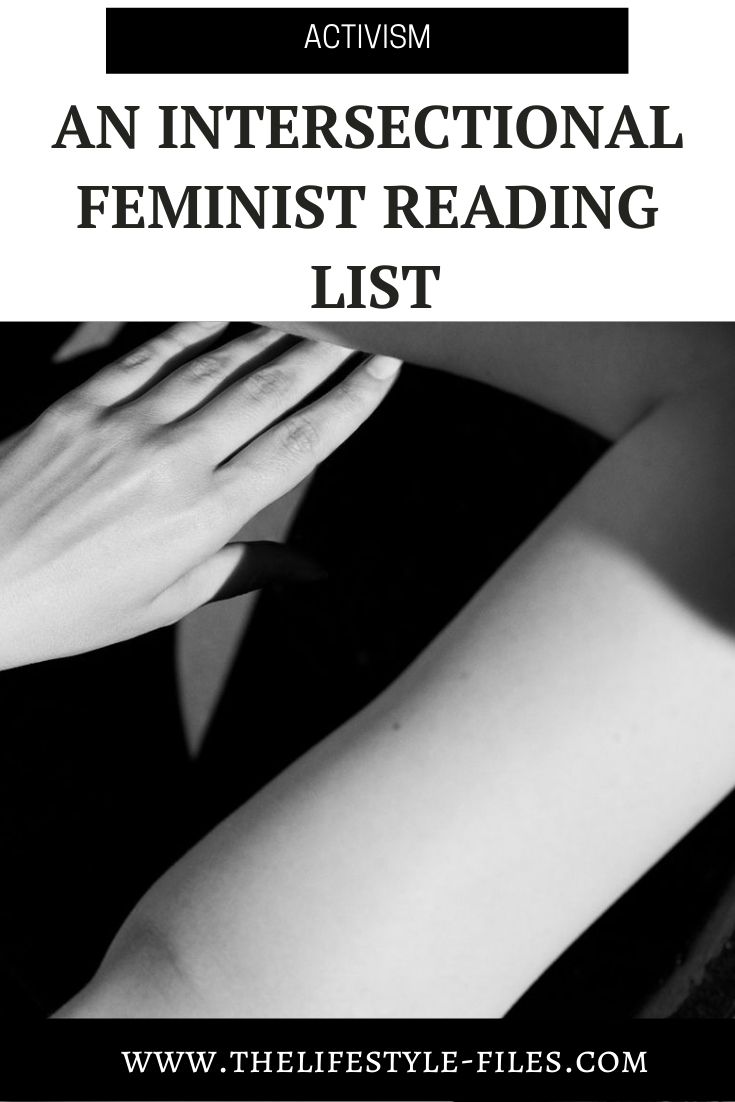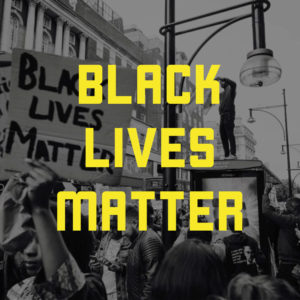The first time I’ve read Lean In by Sheryl Sandberg, it really resonated with me. I was young, I just started working and just had my first experiences with the kind of professional sexism and its destructive effects she talks about in the book, from having impostor syndrome to being ignored in various professional settings. It was liberating and reassuring to know that other women may go through the same things – it felt like being a part of a larger community. Honestly, it never occurred to me at the time, that my experiences were not universal. That other women have different struggles. That career advancement may not be their biggest concern or that discrimination and oppression may look totally different to them.
It took me a long time and a lot of reading, learning, and unlearning to realize that what I thought about women’s rights was shaped exclusively through my own narrow experiences, and feminism as a movement suffered from a lack of diversity. We cannot claim we fight for gender equality if we exclude the experiences and problems of all kinds of women. That doesn’t mean my lived experiences or problems are not valid or don’t warrant action – it just means we shouldn’t assume they apply to everyone else as well or that they should automatically take priority over other issues. We desperately need an intersectional approach to feminism to make it more inclusive.
Intersectionality as a term was coined by scholar Kimberly Crenshaw in the 1980s (though the concept itself is much older) to describe the idea that individuals have different identities that intersect with one another and impact how people are viewed, understood, and treated. Though she originally used the term in connection with race and gender, by now, it became a much wider concept that covers different identities, from race, class, ethnicity to religion, sexual orientation, body type, age, and so on. Women experience discrimination differently depending on what kind of overlapping identities they have, which means that for example, a disabled, queer Black woman will experience different (cumulative) types of oppression than me, an able-bodied, cisgender, heterosexual white woman. (Read more about the intersectional theory here and here).
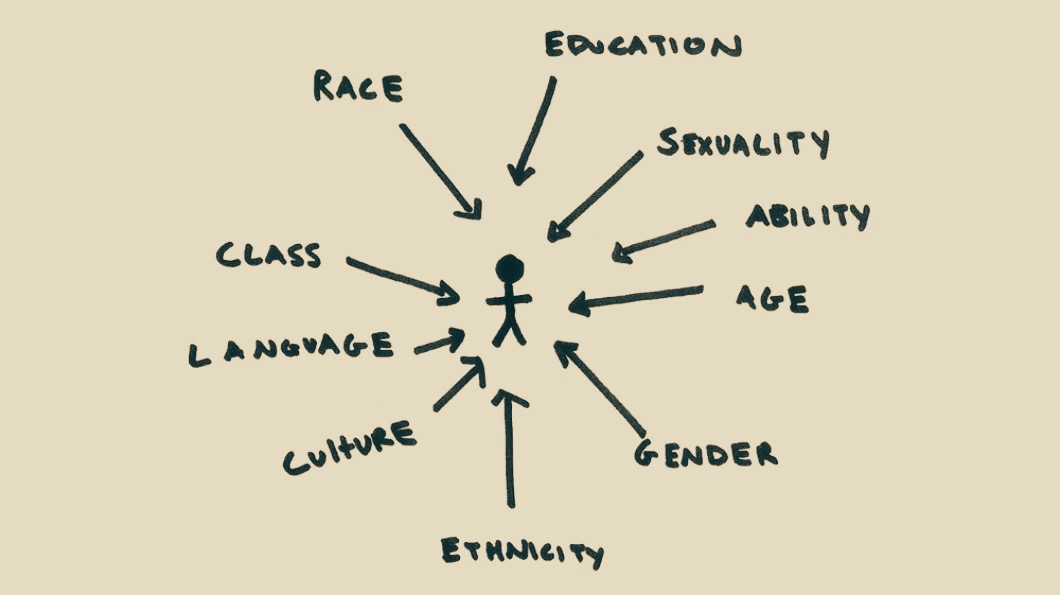
If we want to achieve gender equality and support women better, we need to pay extra attention to the marginalized voices that have been shut out of mainstream politics and discussion for too long.
So, on this International Women’s Day, here’s a starting intersectional feminist reading list with books I’ve either read or are on my reading list. They feature marginalized women who have been fighting for their rights and who work to make their voices heard. They help us understand the myriad different ways women struggle and make progress all over the world. They show us lives and fates we are not familiar with. And I can say with absolute certainty, that they will make us all better feminists and allies.
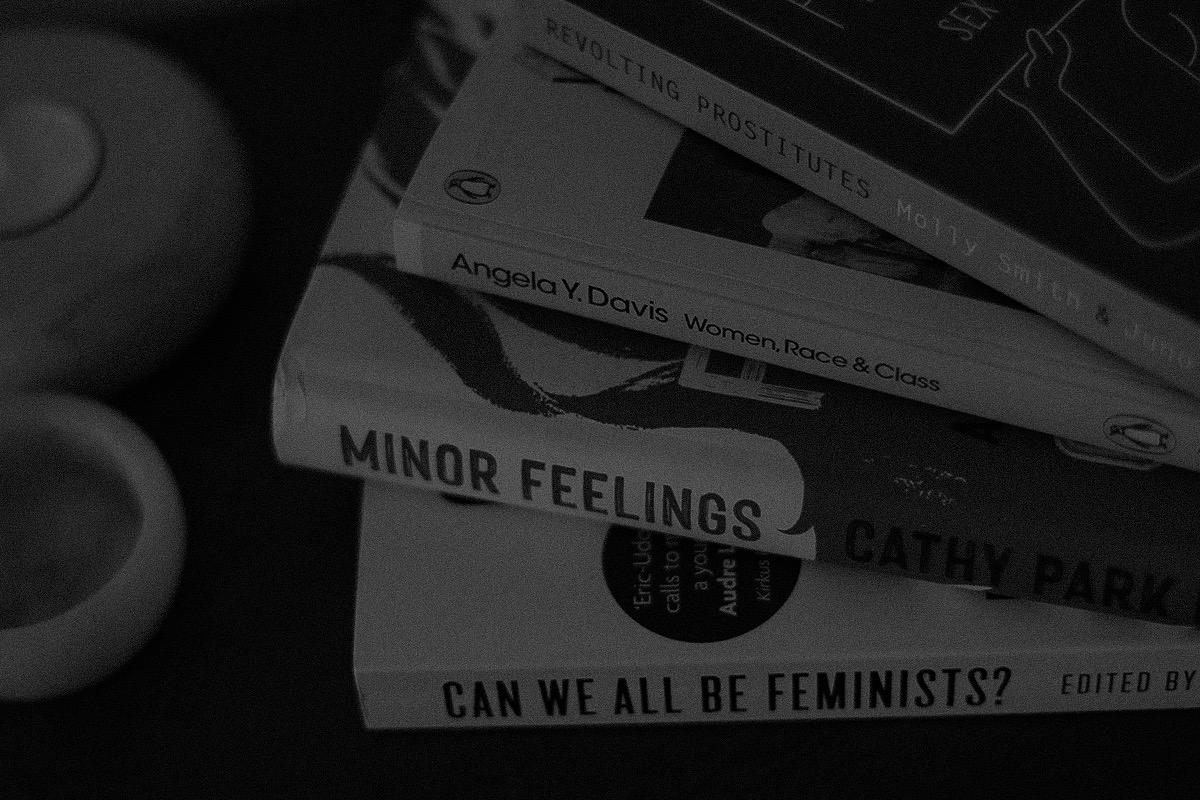
Women, race, and class by Angela Y. Davis
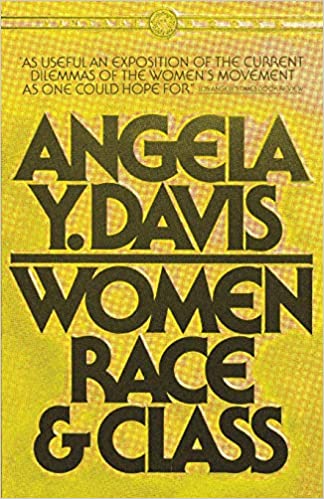 This was the first book I’ve read that showed me why an intersectional approach is essential and how mainstream feminism excluded and overlooked certain groups and issues while supposedly fighting for equal rights. It’s a classic work that was one of the first that provided an intersectional analysis of gender, race, and class. In 13 essays, Angela Y. Davis explores the history of the women’s rights movement and how it failed to really include black and working-class women as well as topics like women’s social status in the slave community or the relationship between the abolitionist and suffragette movements. A classic for a reason.
This was the first book I’ve read that showed me why an intersectional approach is essential and how mainstream feminism excluded and overlooked certain groups and issues while supposedly fighting for equal rights. It’s a classic work that was one of the first that provided an intersectional analysis of gender, race, and class. In 13 essays, Angela Y. Davis explores the history of the women’s rights movement and how it failed to really include black and working-class women as well as topics like women’s social status in the slave community or the relationship between the abolitionist and suffragette movements. A classic for a reason.
Can we all be feminists?
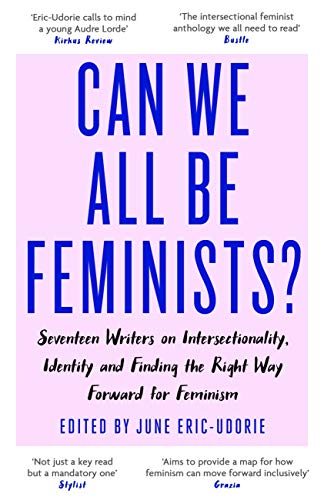 A really good essay collection with a fresh take on intersectionality and a 21st-century vision for a new kind of feminism. 17 writers from diverse backgrounds – writers, activists, artists from all around the world – share their thoughts on feminism in the context of their marginalized identities. From intersectionality in the Black Lives Matter movement, body positivity, immigration, British Muslims, to being queer in a religious community, trans rights, the abortion legalizing campaign in Ireland, colorism, it’s a thought-provoking collection of issues, stories, and struggles.
A really good essay collection with a fresh take on intersectionality and a 21st-century vision for a new kind of feminism. 17 writers from diverse backgrounds – writers, activists, artists from all around the world – share their thoughts on feminism in the context of their marginalized identities. From intersectionality in the Black Lives Matter movement, body positivity, immigration, British Muslims, to being queer in a religious community, trans rights, the abortion legalizing campaign in Ireland, colorism, it’s a thought-provoking collection of issues, stories, and struggles.
It’s not about the burqa
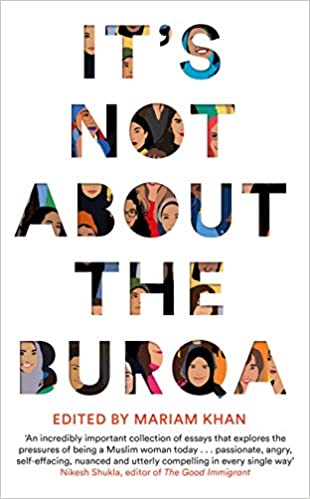 Muslim women are often missing, misunderstood, or misrepresented in political and cultural discussions. In this essay collection, 17 British and international Muslim writers share their thoughts on faith, feminism, love and divorce, sexuality, race…and the hijab.
Muslim women are often missing, misunderstood, or misrepresented in political and cultural discussions. In this essay collection, 17 British and international Muslim writers share their thoughts on faith, feminism, love and divorce, sexuality, race…and the hijab.
Minor feelings by Cathy Park Hong
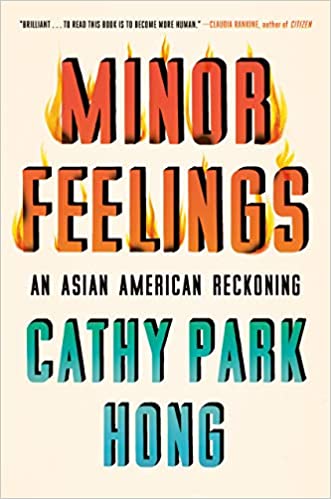 This was one of my favorite reads last year. Cathy Park Hong shares the personal struggles and challenges of having an Asian American identity and consciousness and examines the issues of race and identity in contemporary America. She writes about the origins of the model minority myth, the history of Asian immigration to the US, and the invisibility of Asian Americans in media and popular culture (apart from some stereotypes). Part memoir, part history lesson, and part social and cultural criticism – this a truly unique book.
This was one of my favorite reads last year. Cathy Park Hong shares the personal struggles and challenges of having an Asian American identity and consciousness and examines the issues of race and identity in contemporary America. She writes about the origins of the model minority myth, the history of Asian immigration to the US, and the invisibility of Asian Americans in media and popular culture (apart from some stereotypes). Part memoir, part history lesson, and part social and cultural criticism – this a truly unique book.
Revolting Prostitutes by Juno Mac and Molly Smith
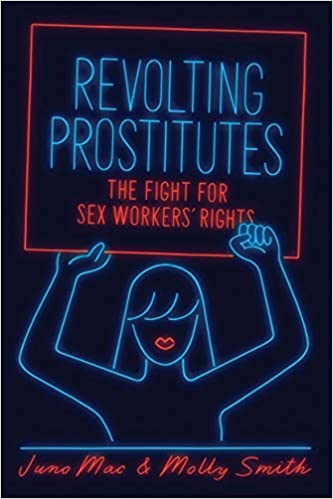 The concept of sex work is an issue that deeply divides feminism – and sometimes it is the perspective of the sex workers themselves that is missing from the discussions. This book was incredibly interesting to read because it was written by two sex workers who share their experiences and insights about sex workers’ rights and discuss the real-life implications of the different sex work policies and laws that exist around the world (from criminalization to full decriminalization and everything in between).
The concept of sex work is an issue that deeply divides feminism – and sometimes it is the perspective of the sex workers themselves that is missing from the discussions. This book was incredibly interesting to read because it was written by two sex workers who share their experiences and insights about sex workers’ rights and discuss the real-life implications of the different sex work policies and laws that exist around the world (from criminalization to full decriminalization and everything in between).
Whipping girl by Julia Serano
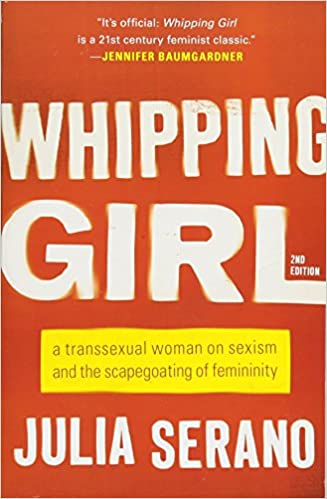 Another book on my reading list, this one about transgender issues and various forms of sexism in Western culture. Julia Serano, a transsexual woman, and professional biologist shares her personal experiences and observations both pre-and post-transition about society’s views on gender, femininity, and sexuality. She debunks popular misconceptions and stereotypes about trans people that appear in society and the media and deconstructs socially accepted narratives on trans women and traditional femininity in Western culture. Her other book, Excluded is specifically about the ways the feminist and queer movements exclude certain groups and how these movements could be made more inclusive.
Another book on my reading list, this one about transgender issues and various forms of sexism in Western culture. Julia Serano, a transsexual woman, and professional biologist shares her personal experiences and observations both pre-and post-transition about society’s views on gender, femininity, and sexuality. She debunks popular misconceptions and stereotypes about trans people that appear in society and the media and deconstructs socially accepted narratives on trans women and traditional femininity in Western culture. Her other book, Excluded is specifically about the ways the feminist and queer movements exclude certain groups and how these movements could be made more inclusive.
Heart berries by Terese Marie Mailhot
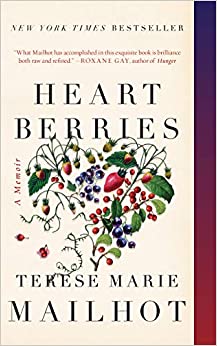 Heart Berries is a poetic memoir by First Nation Canadian writer Terese Marie Mailhot. She recounts her coming of age in a poor and dysfunctional family and in a society that is either hostile towards her or renders her existence invisible. Through a series of essays, she talks about her traumatic past, struggles with mental illness, family relationships, as well as issues facing Indigenous women, including the “Missing and murdered Indigenous women” crisis in Canada.
Heart Berries is a poetic memoir by First Nation Canadian writer Terese Marie Mailhot. She recounts her coming of age in a poor and dysfunctional family and in a society that is either hostile towards her or renders her existence invisible. Through a series of essays, she talks about her traumatic past, struggles with mental illness, family relationships, as well as issues facing Indigenous women, including the “Missing and murdered Indigenous women” crisis in Canada.
Fading Scars: My Queer Disability History by Corbett Joan OToole
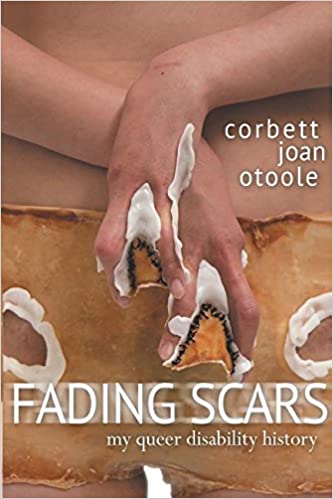 Corbett Joan OToole is one of the most prominent disability rights activists in the US. In this collection of essays, she tells the history of the movement with its most dramatic moments and sheds light on the intersections of disability with sex, gender, race, and class through personal stories. She explores her own and the disability community’s power and privilege with humor, insight, and honest observations, and shows readers what it takes to change the world.
Corbett Joan OToole is one of the most prominent disability rights activists in the US. In this collection of essays, she tells the history of the movement with its most dramatic moments and sheds light on the intersections of disability with sex, gender, race, and class through personal stories. She explores her own and the disability community’s power and privilege with humor, insight, and honest observations, and shows readers what it takes to change the world.
The undocumented Americans by Karla Cornejo Villavicencio
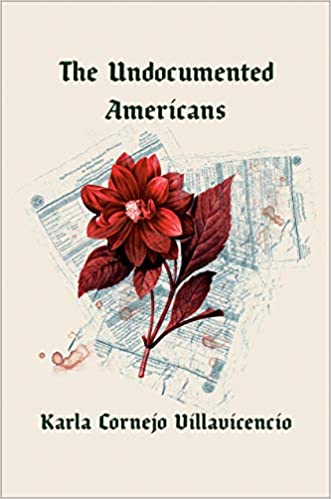 Immigrant and undocumented people have been shoved into the center of political debates in recent years (not just in the US, but worldwide), yet it’s rare for them to share their own stories in full. This book is the result of 10 years of reporting, it’s part memoir and part investigative journalism. The author explores the hidden lives of the undocumented in America, showing how complex and versatile their personal stories are – including hers, a Dreamer, and one of the first undocumented immigrants to graduate from Harvard.
Immigrant and undocumented people have been shoved into the center of political debates in recent years (not just in the US, but worldwide), yet it’s rare for them to share their own stories in full. This book is the result of 10 years of reporting, it’s part memoir and part investigative journalism. The author explores the hidden lives of the undocumented in America, showing how complex and versatile their personal stories are – including hers, a Dreamer, and one of the first undocumented immigrants to graduate from Harvard.
The geek feminist revolution by Kameron Hurley
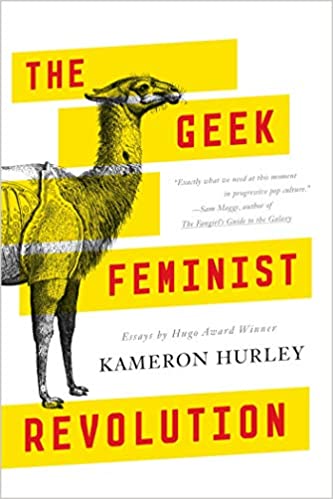 A collection of essays by award-winning essayist and science fiction writer Kameron Hurley on feminism, geek culture, online misogyny, writing, pop culture, privilege, and the many challenges women and minorities face in the writing industry and San Francisco. The book mixes personal stories with sociocultural criticism and, according to reviews, does it in an effortless, capturing, opinionated, and satirical style.
A collection of essays by award-winning essayist and science fiction writer Kameron Hurley on feminism, geek culture, online misogyny, writing, pop culture, privilege, and the many challenges women and minorities face in the writing industry and San Francisco. The book mixes personal stories with sociocultural criticism and, according to reviews, does it in an effortless, capturing, opinionated, and satirical style.

